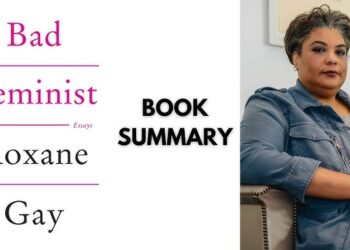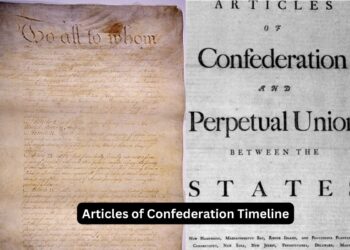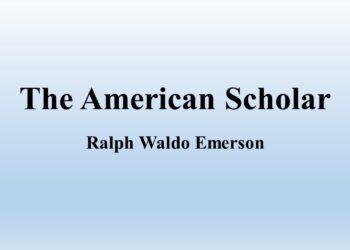“Mother Tongue” is an essay written by Amy Tan, a Chinese-American writer. In the essay, Tan explores the relationship between language, identity, and culture. She reflects on her own experiences growing up in an immigrant household and the challenges she faced due to her mother’s limited English proficiency.
Mother Tongue Essay Summary By Amy Tan-Tan begins the essay by describing various instances where she witnessed her mother’s struggles with English.
She explains how people often treated her mother with condescension and dismissiveness because of her broken English. Despite her mother’s intelligence and knowledge, she was often disregarded and not taken seriously.
Mother Tongue Essay Summary By Amy Tan-Tan then reflects on her own journey with language and how her upbringing influenced her writing. She explains that she grew up speaking what she calls “broken” or “limited” English at home, while she was exposed to more formal English in school and other public settings. This duality in language use shaped her perception of the power dynamics between different languages and influenced her writing style.
Also Read-
- In Bed Essay Summary By Joan Didion
- Such, Such Were the Joys Essay Summary By George Orwell
- The Death of a Moth Essay Summary By Virginia Woolf
- A Room of One’s Own Essays Summary By Virginia Woolf
Mother Tongue Essay Summary By Amy Tan-The essay delves into the concept of “mother tongue,” referring to the language spoken by one’s mother or the language one grows up speaking at home. Tan explores the significance of this language in shaping one’s identity and the complexities that arise when someone has a different mother tongue from the dominant language in society.
Tan’s relationship with her mother is a central theme in the essay. She expresses admiration for her mother’s resilience and intelligence, despite the limitations imposed by her English proficiency. Tan discusses how she had to act as her mother’s interpreter in various situations, navigating the linguistic and cultural barriers they encountered.
Mother Tongue Essay Summary By Amy Tan-Overall, “Mother Tongue” is a personal exploration of language, communication, and cultural identity. Tan emphasizes the importance of recognizing and valuing the richness of different languages and the unique perspectives they offer. The essay highlights the struggles faced by immigrant families and challenges readers to reconsider their attitudes towards non-native English speakers.
About Amy Tan
Amy Tan is a renowned Chinese-American writer born on February 19, 1952, in Oakland, California. She is best known for her novels, which often explore themes of family dynamics, cultural identity, and the immigrant experience.
Mother Tongue Essay Summary By Amy Tan-Tan’s most famous work is her debut novel, “The Joy Luck Club” (1989), which explores the complex relationships between Chinese immigrant mothers and their American-born daughters.
The novel was a critical and commercial success, earning widespread acclaim and becoming a bestseller. It was later adapted into a film in 1993.
Mother Tongue Essay Summary By Amy Tan-Throughout her career, Tan has written several other novels, including “The Kitchen God’s Wife” (1991), “The Hundred Secret Senses” (1995), “The Bonesetter’s Daughter” (2001), and “Saving Fish from Drowning” (2005). Her works often blend elements of Chinese and American culture, exploring the generational and cultural gaps experienced by Chinese immigrant families in the United States.
Mother Tongue Essay Summary By Amy Tan-In addition to her novels, Tan has also written non-fiction works, essays, and children’s books. Her essay “Mother Tongue” is widely studied and admired for its exploration of language and cultural identity.
Amy Tan’s writing has received numerous accolades and awards, including the National Book Award and the Commonwealth Gold Award. Her works have been translated into more than 35 languages and have garnered a global readership.
Mother Tongue Essay Summary By Amy Tan-As a prominent figure in Asian American literature, Tan has been an advocate for the representation of Asian voices in the literary world. She has been actively involved in promoting literacy and supporting emerging writers.
Amy Tan’s writing continues to resonate with readers around the world, addressing universal themes of love, loss, and the search for identity. Her works contribute to a greater understanding of the complexities of cultural and familial connections in an increasingly diverse society.
Conclusion
Mother Tongue Essay Summary By Amy Tan-Amy Tan’s essay “Mother Tongue” provides a thought-provoking exploration of language, identity, and cultural dynamics. Through her personal experiences and observations, Tan sheds light on the challenges faced by individuals who speak English as a second language or have limited English proficiency.
Mother Tongue Essay Summary By Amy Tan-The essay emphasizes the importance of understanding and valuing the diversity of language. Tan challenges the notion that proficiency in English is the sole measure of intelligence or worth. She highlights the power dynamics that can arise between different languages and calls for a more inclusive and accepting attitude towards non-native English speakers.
Moreover, “Mother Tongue” underscores the significance of one’s mother tongue in shaping identity and communication. Tan’s reflections on her own journey with language reveal the complexities and nuances that arise when navigating between different linguistic and cultural contexts.
Mother Tongue Essay Summary By Amy Tan-Through her portrayal of her mother’s struggles, Tan also showcases the resilience and strength exhibited by immigrants and non-native English speakers. She invites readers to recognize and appreciate the intelligence, knowledge, and experiences that may be concealed behind non-standard or limited English.
Mother Tongue Essay Summary By Amy Tan-Ultimately, “Mother Tongue” serves as a reminder to embrace linguistic diversity and to foster understanding and empathy towards individuals who communicate in different languages. Tan’s essay encourages a more inclusive and respectful society, where all languages and cultures are valued and celebrated.
FAQ.
Q. What is the main message of “Mother Tongue”?
Ans. The main message of “Mother Tongue” is to challenge the notion that proficiency in the English language is the sole indicator of intelligence or worth. Amy Tan highlights the importance of valuing linguistic diversity and understanding the complex dynamics between different languages and cultures.
Q. How does Amy Tan explore the relationship between language and identity in the essay?
Amy Tan reflects on her own experiences growing up in an immigrant household and how her mother’s limited English proficiency affected their lives. She discusses the concept of “mother tongue” and its role in shaping one’s identity. Tan emphasizes the significance of embracing and appreciating different languages as an integral part of personal and cultural identity.
Q. What does Amy Tan mean by “broken” or “limited” English?
Ans. “Broken” or “limited” English, as referred to by Amy Tan, describes the non-standard or imperfect English spoken by her mother and other non-native English speakers. It reflects their struggles in expressing themselves fluently in English due to their background or limited exposure to the language.
Q. How does Tan portray her mother’s struggles with English?
Ans. Tan depicts her mother’s struggles with English through various anecdotes and instances in the essay. She highlights how her mother’s limited English proficiency often led to misunderstandings and dismissive treatment from others. Despite these challenges, Tan presents her mother as a resilient and intelligent individual.
Q. What does Amy Tan want readers to understand about non-native English speakers?
Ans. Amy Tan wants readers to understand that non-native English speakers bring a wealth of knowledge, experiences, and perspectives to the table, even if they may not communicate in standard English. She encourages readers to appreciate and respect the intelligence and contributions of non-native English speakers, challenging the biases and stereotypes often associated with language proficiency.
















